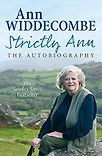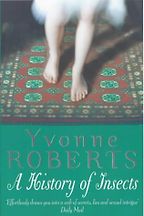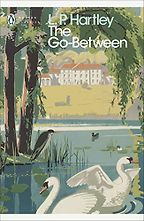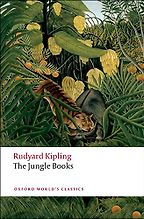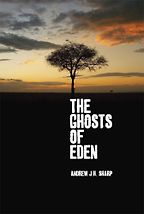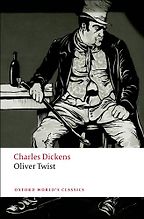Let’s start with A History of Insects.
A History of Insects is about a girl of about eight or nine growing up in Pakistan in the days of Empire, getting very friendly with a Pakistani man who works in the household and treating him like a favourite uncle. She keeps a diary of events, but, because she doesn’t want anyone to read it, she writes ‘A History of Insects’ on the cover. She can’t understand the adult world about her, the racism that is endemic, and then, sure enough, a major thing goes wrong and the adults try to blame the Pakistani. She doesn’t understand this, she doesn’t understand the dynamics of infidelity that are going on among the adults, she doesn’t understand anything at all. It’s all very puzzling to her. I think it’s a brilliantly controlled book because you never come out of the character of the child, who’s just looking on the adult world in bafflement. I think what all the books I’ve chosen have got in common is that the child at the centre of them simply doesn’t understand. You’ve got exactly the same sort of situation in The Go-Between.
Tell me about that book.
The Go-Between is about a child, Leo Colston, who goes to stay with a family. He ends up being used by adults to run errands: he’s taking letters between a couple, Marianne and Ted, who are having an illicit affair, and he doesn’t know what’s going on. He’s just so innocent, and then he experiences the sheer shock of suddenly realising what’s been going on and the huge amount of adult recrimination that comes with it.
The big difference between these two books is that The Go Between has an adult perspective.
Yes. In A History of Insects it’s contemporaneous and in The Go-Between he’s looking back. But, although Leo Colston is relating it in retrospect, he’s also relating it as he saw it at the time. So yes, he’s got the knowledge now to understand what it was he was doing but he does take us into a world, and a very innocent world, at the end of the last century, where the children are quite benignly ignored. I think we all forget that air of bafflement from childhood: we remember loads of things about childhood – we all remember innocence. I think what we tend to forget is bafflement.
Do you think the charm of The Go-Between is in its bafflement or in its innocence?
I think it’s a mixture of both; I mean, bafflement is innocence: that state in which you simply haven’t a clue, and, of course, once it’s lost it’s lost for ever. Once you’ve understood what the real world is about, and what is going on in adult life, and that grownups aren’t gods, they’re actually human beings with the normal quota of faults and foibles … once you’ve got to that stage you can never ever go back. You could go back and play childish games or go back to childish pursuits, but you can never return to the state of innocence. I think that quite a few authors look back on that with nostalgia whether they realise it or not, almost wishing they could recreate innocence. I think L P Hartley never produced anything like as good as The Go-Between again.
Tell me about The Jungle Books.
The children in those first two books are left to their own devices. But when we talk about them being alone, they are alone only some of the time. Mowgli, the main character of The Jungle Books, of course, is alone period because he’s the manchild and the only one there.
It’s about a boy adopted by wolf cubs, living wild in the jungle.
Yes, and he has great adventures: we have the Bandar-log, and Kaa the snake who at one point almost swallows up Mowgli’s later protector, Bagheera the panther. But there is nobody else. He’s utterly alone, and he’s only got wolf cubs, but he doesn’t know it. I mean, he thinks he is just part of the jungle and there is that terrible moment in The Jungle Books where he realises how the wolves in general hate him and he just stands there crying, although by then he’s an older teenager, but it’s because he has never understood that he was different. There’s a whole world there in that scene. I don’t even know if Kipling realised it when he was writing it, but it’s the utter breaking of innocence, because he thought he was part of them, that he was loved by them, that he was one of them, and then suddenly has to realise that he’s completely different and he’s not one of them, and they don’t actually love him at all. Now, what a moment! What a moment! And then, of course, he goes off and explores mankind.
Mowgli is coming of age in that scene.
Yes, totally. It’s a shock moment. I think that Mowgli is very, very accepting of everything, but all the time there’s a basic stability there. Baloo the bear and Bagheera love him, the mother and father wolf love him, Shere Khan the Tiger is the enemy, there’s danger here and there’s danger there. He survives these various adventures but there is an underlying stability there and I don’t think that doors open and shut for him until there’s this tremendous wham! Right at the point where he suddenly realises that he’s not one of them and that they don’t all love him – I think that’s a terrible moment. You know, if he was confronting Shere Khan, that’s nothing. But he was confronting those that he had utterly taken for granted and relied on. I think that is a really decisive moment: it’s the breaking of innocence and he can never have it again. Once innocence has been lost it can’t be reinstated.
What is The Ghosts of Eden about?
It is a wonderful story following two children: one colonial, one native African. The colonial is the child of missionaries and they both, in completely different circumstances, kill. The colonial child just gets into an ordinary fight with another boy, such as happens every day, but unfortunately they both go through a train window as a result of this fight, and one dies. The other child, the African, eventually kills his brother but that’s a slightly different story. They’re growing up in the same country very close to each other but in completely different worlds. The African child’s day is divided by the requirements of looking after the herds, but eventually, because he’s clever, his father sends him off to get a white man’s education and, if you like, he comes into the world of the white man. But, in both those cases, it is a question of innocence: the African child cannot conceive of the white man’s world which is nothing to do with him, and he can’t understand his brother’s absolute resentment at his education. Similarly, the white child doesn’t understand why the friend is occasionally jealous, distant, angry and remote. They’re two innocents, because they don’t really understand the two worlds that exist in the one country. It’s just out – very new – and I only read it because I was sent a review copy. I thought: yes, this is a pretty rare book, whoever wrote this has really got something. I really did enjoy it. This is very straightforward: I do actually demand an easy read, I don’t like what I call cleverness in authors. And it’s very realistic; you can almost smell the heat. You don’t get the impression you’re looking at Africa from England – you are actually there.
Tell me about Oliver Twist.
Oliver is a boy who has escaped the workhouse and is adopted by a family of pickpockets. He’s the exception – because he’s being manipulated by the grownups, in his case Fagin. So his innocence is not being protected; it’s the exact opposite, although he is innocent. Nobody who wasn’t would have said ‘Can I have some more?’ in those circumstances. I think this is a completely different angle on childhood innocence. Because Oliver knows what he’s doing. I mean, if you said to him, ‘Are you stealing?’, he would say yes. He knew what he was doing but he didn’t have any choice from where he was. And he’s being used by adults; if you like, his innocence is being quite deliberately assaulted.
You would say assaulted?
Yes, I would. I would say that Fagin is exploiting the situation, which is somewhat different. And he’s exploiting the fact that people assume children are innocent.
July 20, 2017. Updated: September 15, 2021
Five Books aims to keep its book recommendations and interviews up to date. If you are the interviewee and would like to update your choice of books (or even just what you say about them) please email us at [email protected]
Five Books interviews are expensive to produce. If you've enjoyed this interview, please support us by donating a small amount.

